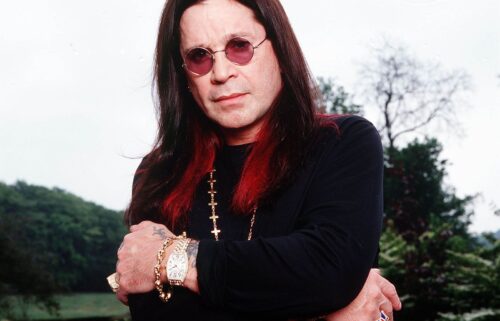Best Black movies of 2022
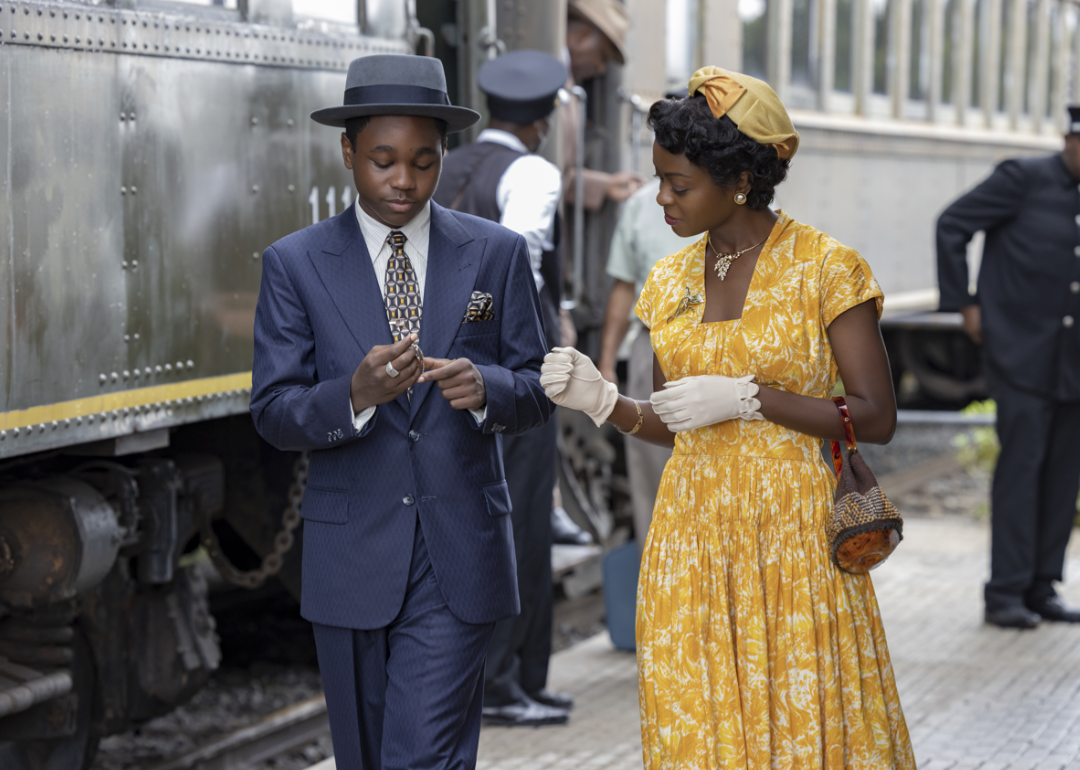
Orion Pictures
Best Black movies of 2022
Danielle Deadwyler and Jalyn Hall in a scene from ‘Till’.
Black cinema had an impressive year. From the days of Black filmmakers creating movies for segregated Black audiences in the early 1900s, Black movies have come a long way down a rocky road.
The Lincoln Motion Picture Company, established by George P. Johnson in 1916, was the first Black-owned company to produce Black stories for Black audiences. Over 100 years later, the number of Black actors and production companies—including Jordan Peele’s Monkeypaw Productions, Tyler Perry Studios, and Spike Lee’s 40 Acres and a Mule Filmworks, which currently has a deal with Netflix—has increased exponentially. Still, the reality remains that there are significant barriers for most Black creatives in the filmmaking industry.
Fewer Black stories are told on screen. And when they are, they’re chronically underfunded and undermarketed. Likewise, Black actors overall are presented with fewer opportunities in their careers. As these statistics slowly change, an integral part of that shift is highlighting and celebrating the Black creatives and films making a mark on the industry and entertaining audiences.
To underscore the year’s best projects in Black cinema, Stacker looked at Metacritic data of all movies released in 2022 and ranked the top 25 films, which had to have at least seven reviews to qualify and either be helmed by Black directors, filmmakers, or actors.
You may also like: 15 controversial Oscar wins—and how they’ve aged
![]()
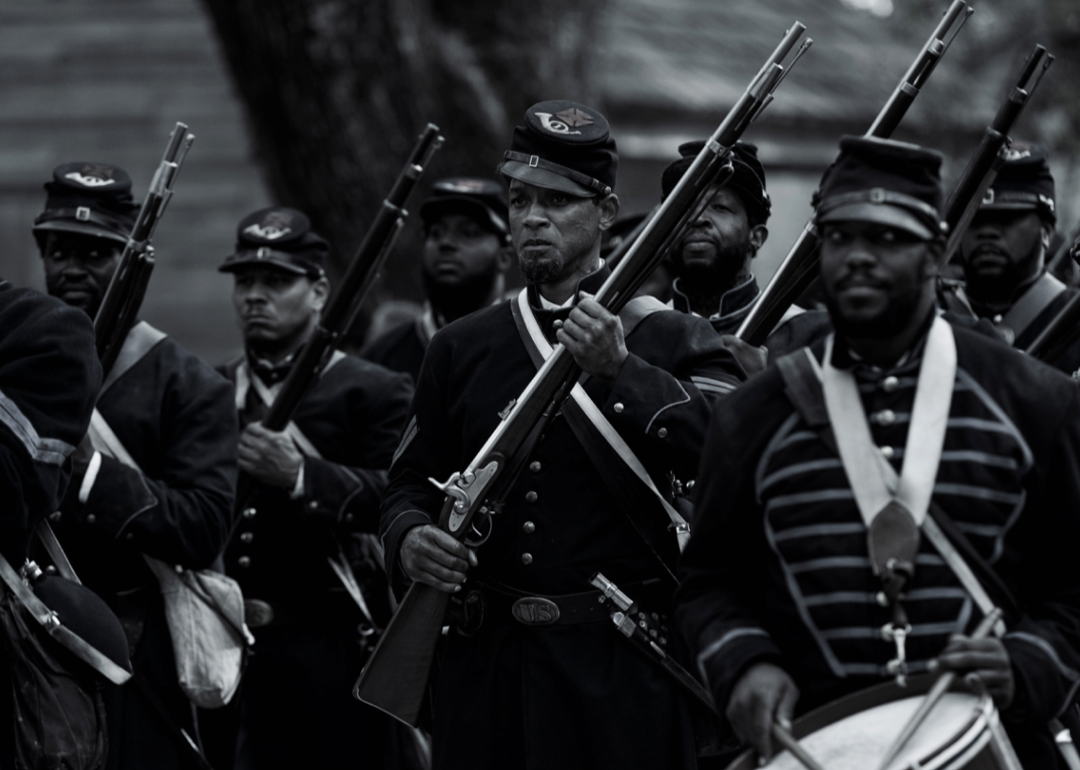
Apple TV+
#25. Emancipation
Will Smith in a scene from ‘Emancipation.’
– Director: Antoine Fuqua
– Metascore: 54
– Runtime: 132 minutes
Antoine Fuqua’s “Emancipation” follows the story of Peter (Will Smith), a Civil War-era enslaved man who manages to break away from the Louisiana plantation where he works and fight for the Union. While this is a fictional drama, “Emancipation” is based on the real-life story of Gordon, an enslaved man who did actually manage to escape the plantation where he was held. Later, Gordon was photographed for the magazine Harper’s Weekly, where his brutal scarring served as concrete proof of the abuse inherent to slavery. Released in early December on Apple TV+, “Emancipation” marks a different kind of role for Will Smith, who underwent a physical transformation to portray the rebellious Peter.
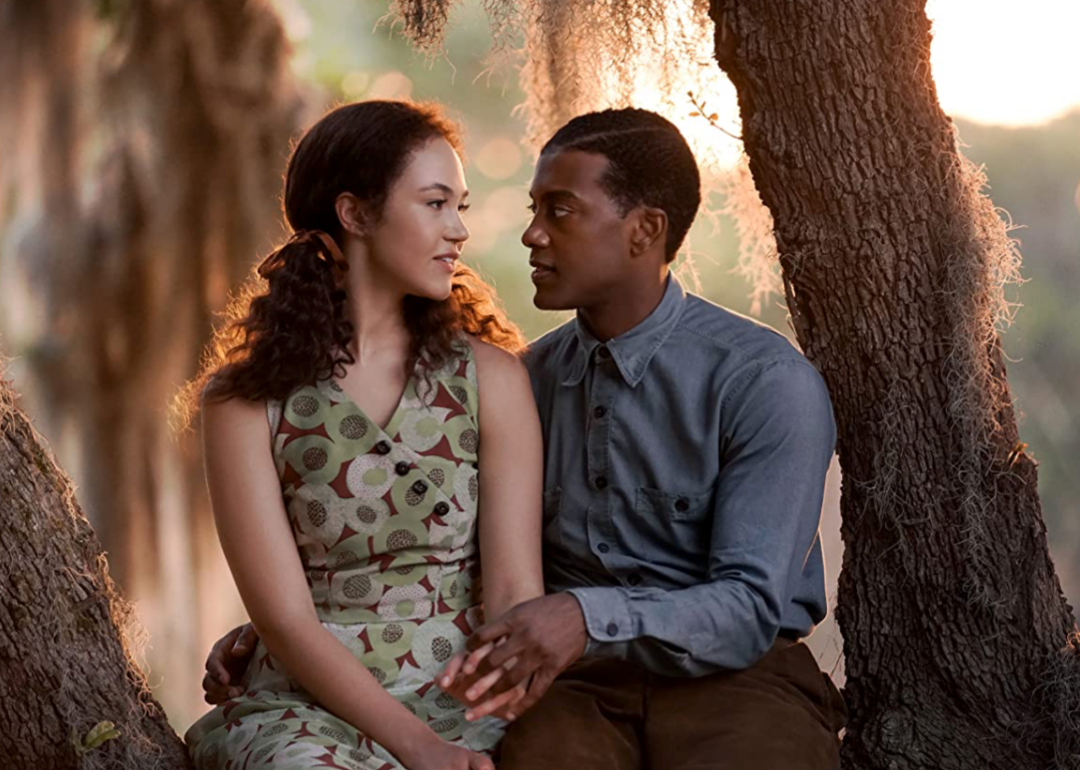
Tyler Perry Studios
#24. A Jazzman’s Blues
Joshua Boone and Solea Pfeiffer in ‘A Jazzman’s Blues’.
– Director: Tyler Perry
– Metascore: 63
– Runtime: 127 minutes
Written, directed, and produced by cinematic powerhouse Tyler Perry, “A Jazzman’s Blues” tells a tale of love and music set in the Jim Crow era of American history. This film features two timelines. The first tells the story of an older woman named Hattie Mae (Amirah Vann) presenting Attorney General Jonathan with letters that could solve a decades-old lynching. Meanwhile, the other plot tells the story contained within those letters: a yearslong courtship between white-passing Leanne and a Black musician named Bayou which results in him being the victim of a lynch mob. While Perry’s film is a romance, it doesn’t shy away from the anger of its subject matter and its protagonists’ desire to escape in the face of blatant racism while touching on themes of colorism and antisemitism.
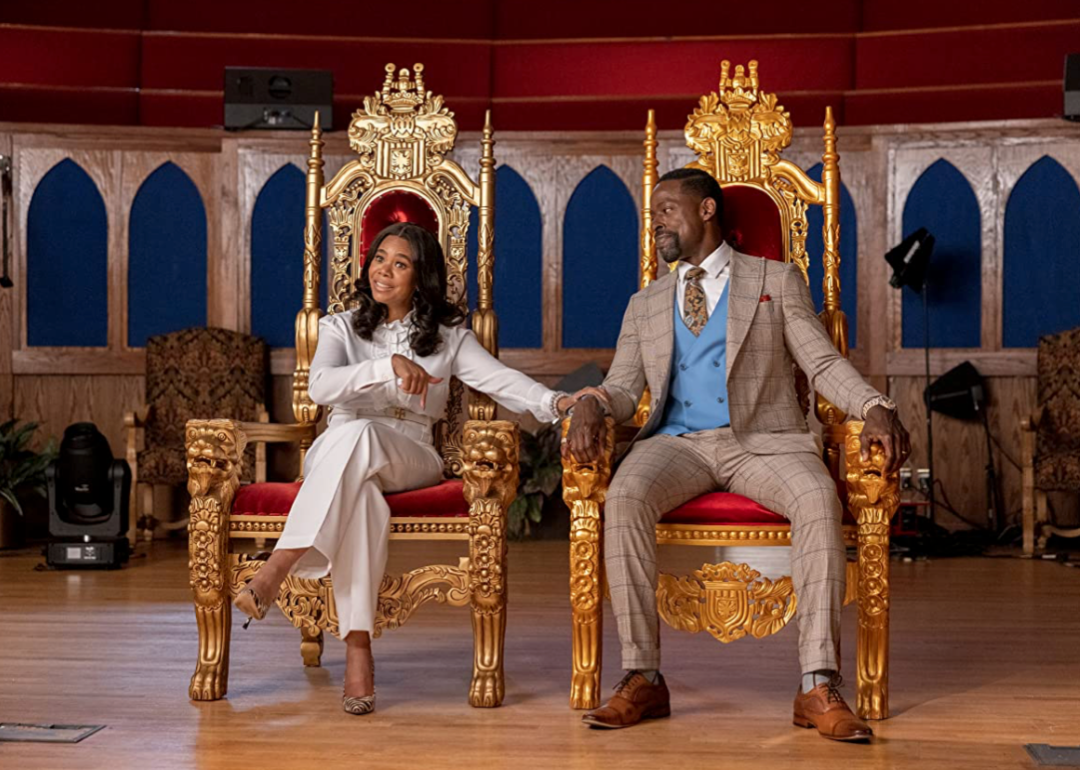
Pinky Promise
#23. Honk for Jesus. Save Your Soul.
Regina Hall and Sterling K. Brown in ‘Honk for Jesus. Save Your Soul.’
– Director: Adamma Ebo
– Metascore: 63
– Runtime: 102 minutes
“Honk for Jesus. Save Your Soul.” is a comedic mockumentary about the hypocrisy of U.S. megachurches and the individuals who run them. The film centers around Lee-Curtis (Sterling K. Brown) and Trinitie Childs (Regina Hall), the pastor and first lady of a megachurch, who attempt to reopen their church a year after losing their following due to a massive scandal. Written, directed, and produced by Adamma Ebo alongside Daniel Kaluuya and Jordan Peele as producer and executive producer, respectively, this film is a powerhouse of impressive contemporary Black talent.
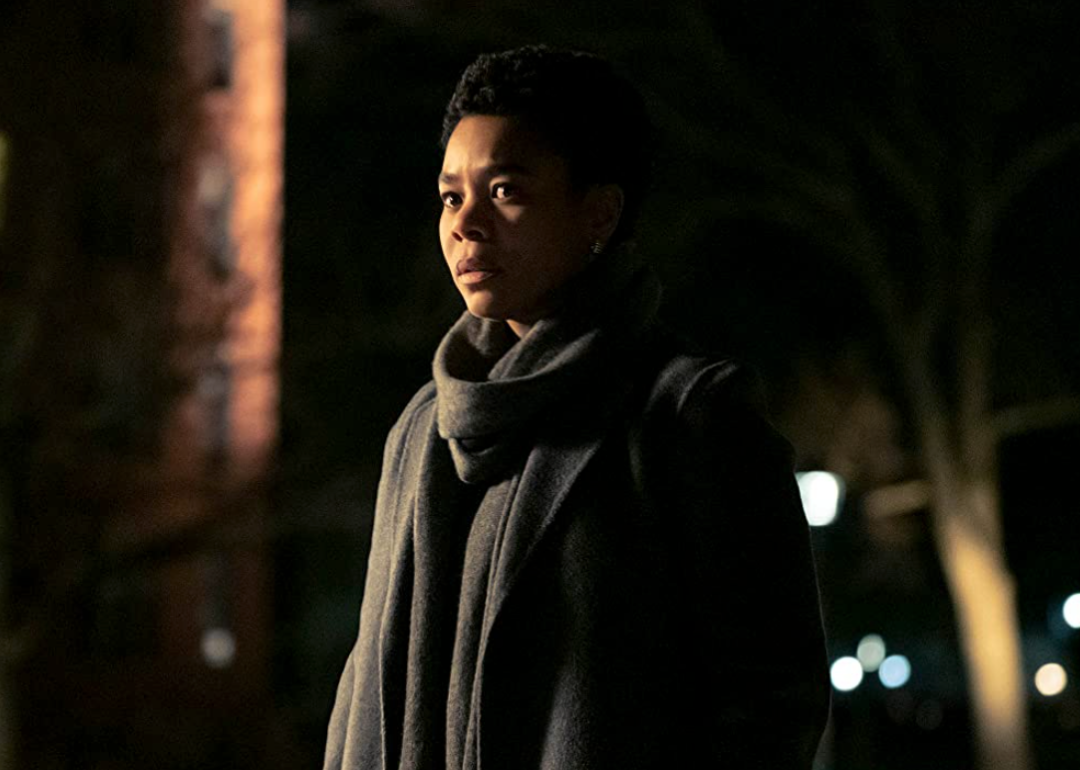
Sundance Institute
#22. Master
Regina Hall in a scene from ‘Master.’
– Director: Mariama Diallo
– Metascore: 66
– Runtime: 98 minutes
Comedic genius Regina Hall depicts Gail Bishop, the titular master in question in this eerie endeavor from Mariama Diallo. But “Master” is by no means a comedy. This horror film follows Gail as she becomes the master of a private university in New England allegedly cursed by the ghost of a witch. At times a psychological thriller and a haunting supernatural film at others, Gail and two students, Jasmine (Zoe Renee) and Amelia (Talia Ryder), are forced to question whether the curse is real or a disgruntled faculty member is to blame for the mysterious and murderous events befalling the school. Diallo’s directorial debut blends systemic racism with supernatural themes in a smart story exploring the experiences of Black individuals in higher educational institutions.
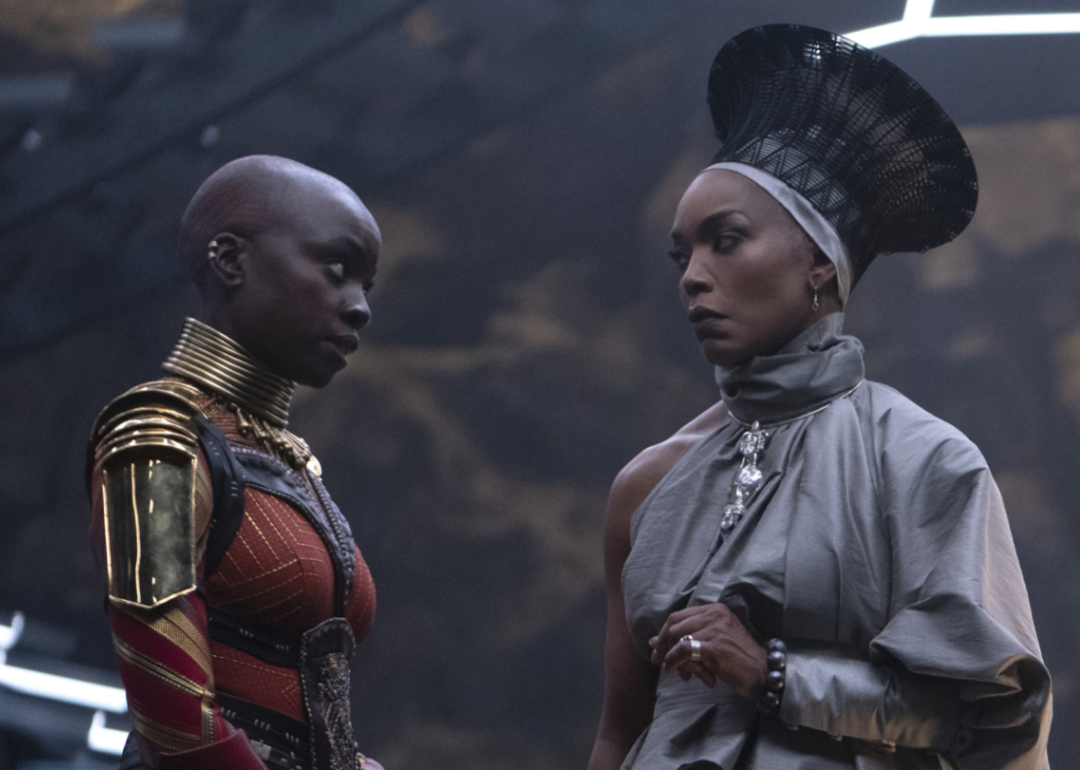
Marvel Studios
#21. Black Panther: Wakanda Forever
Angela Bassett and Danai Gurira in ‘Black Panther: Wakanda Forever’
– Director: Ryan Coogler
– Metascore: 67
– Runtime: 161 minutes
Following the untimely death of “Black Panther” star Chadwick Boseman, director Ryan Coogler was forced to rebuild his franchise all over again: “Black Panther: Wakanda Forever” is the result. This highly anticipated sequel sees Queen Ramonda (Angela Bassett) and Shuri (Letitia Wright), mother and sister of T’Challa (Boseman), grappling with the aftershocks of his death. While they struggle to continue the Black Panther legacy, they must protect the kingdom of Wakanda from invaders from all sides. With themes of colonization, grief, and political autonomy, “Black Panther: Wakanda Forever” melds the harsh reality of losing Boseman with the increasing political turmoil occurring in the United States all wrapped up in a Marvel blockbuster.
You may also like: Classic movie quotes that have broken into our daily vocabulary
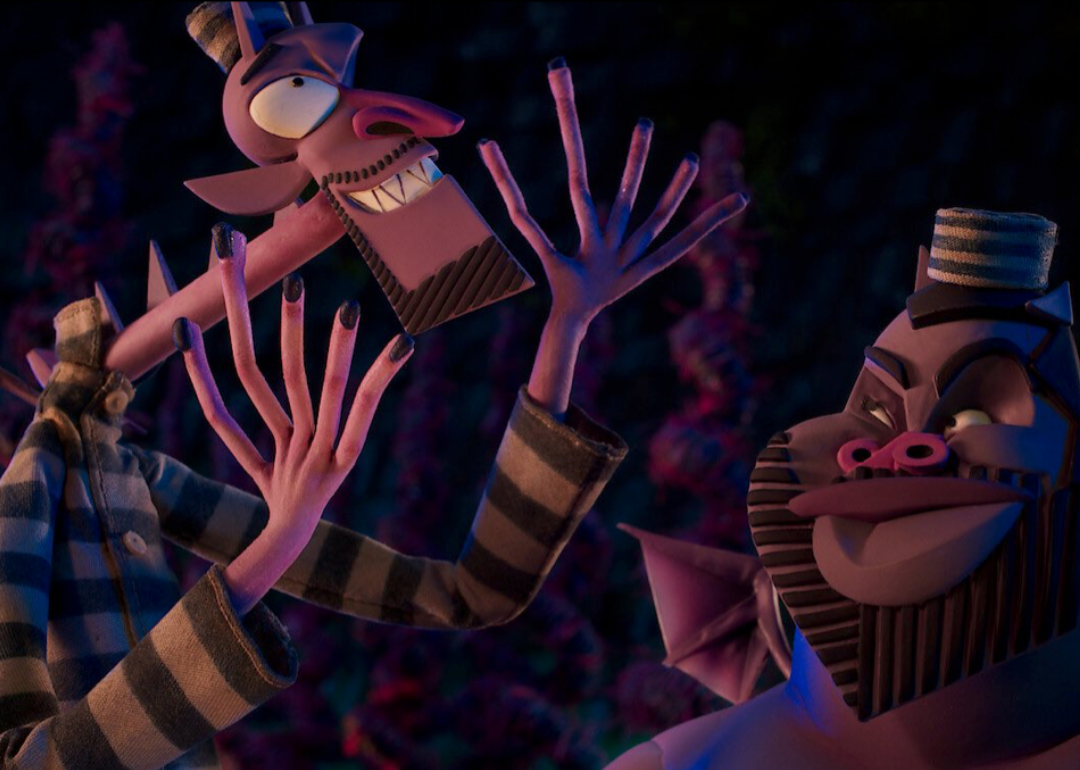
Artists First
#20. Wendell & Wild
Keegan-Michael Key and Jordan Peele in ‘Wendell & Wild’.
– Director: Henry Selick
– Metascore: 69
– Runtime: 105 minutes
The notable exception on this list, “Wendell & Wild” is a stop-motion animation film about a young Black girl named Kat grieving the loss of her parents. The film does not have a Black director but was co-written by, co-produced by, and co-stars Jordan Peele. The film sees the reunion of the comedic duo Keegan-Michael Key and Jordan Peele as the titular demons Wendell (Key) and Wild (Peele), two brothers trapped in the underworld tasked with applying hair cream on their father’s head. With dreams of starting their own amusement park on Earth, they find their opportunity when they’re linked with Kat (Lyric Ross), a punk orphan forced to attend Catholic school. This film stands out for its beautiful stop-motion animation, previously achieved by “Coraline” director Henry Selick. It is further distinguished for being a stop-motion animation with a Black lead and for having a canonically trans character.
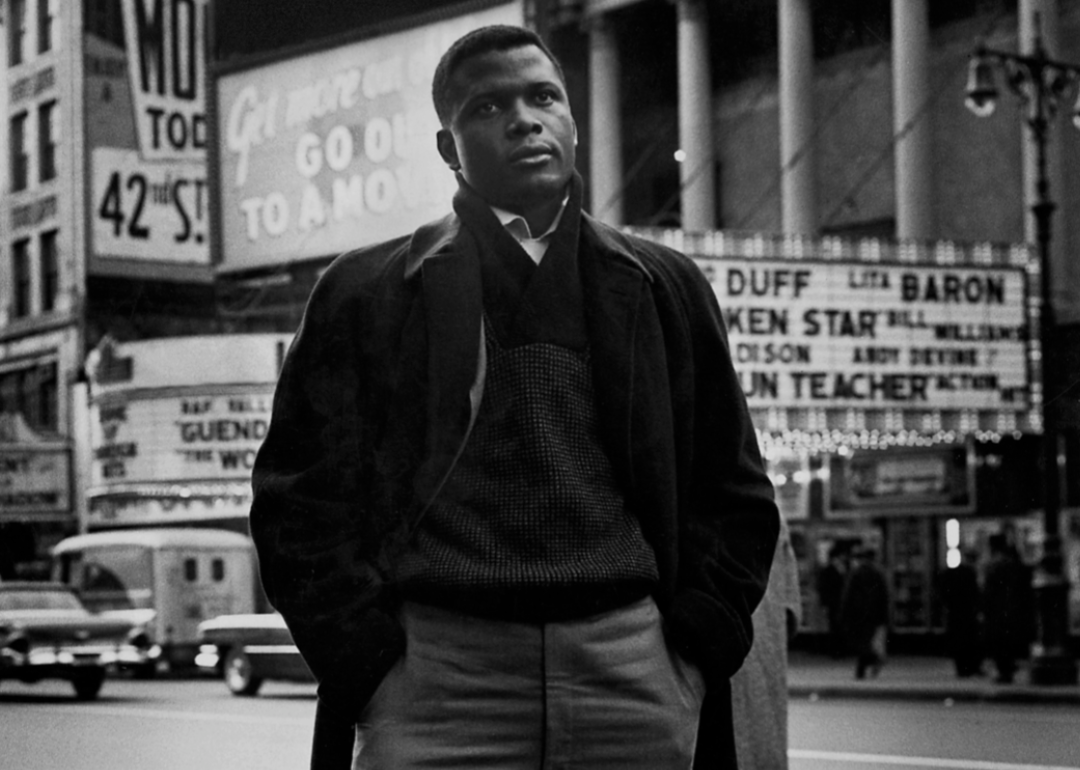
Apple Studios
#19. Sidney
Sidney Poitier in ‘Sidney.’
– Director: Reginald Hudlin
– Metascore: 70
– Runtime: 111 minutes
This feature film documentary centers the life of iconic actor and director Sidney Poitier, as told through Poitier’s own words. Director Reginald Hudlin structures the narrative around Potier’s voice-over and interviews, starting from his childhood in the Bahamas to his life as a hugely successful Black actor in the United States. Hudlin also features Poitier’s interviews with celebrities—including Oprah Winfrey, who produced the film—and cultural critics alike who don’t shy away from discussing difficult topics like Poitier’s complicated relationship with his Black identity.
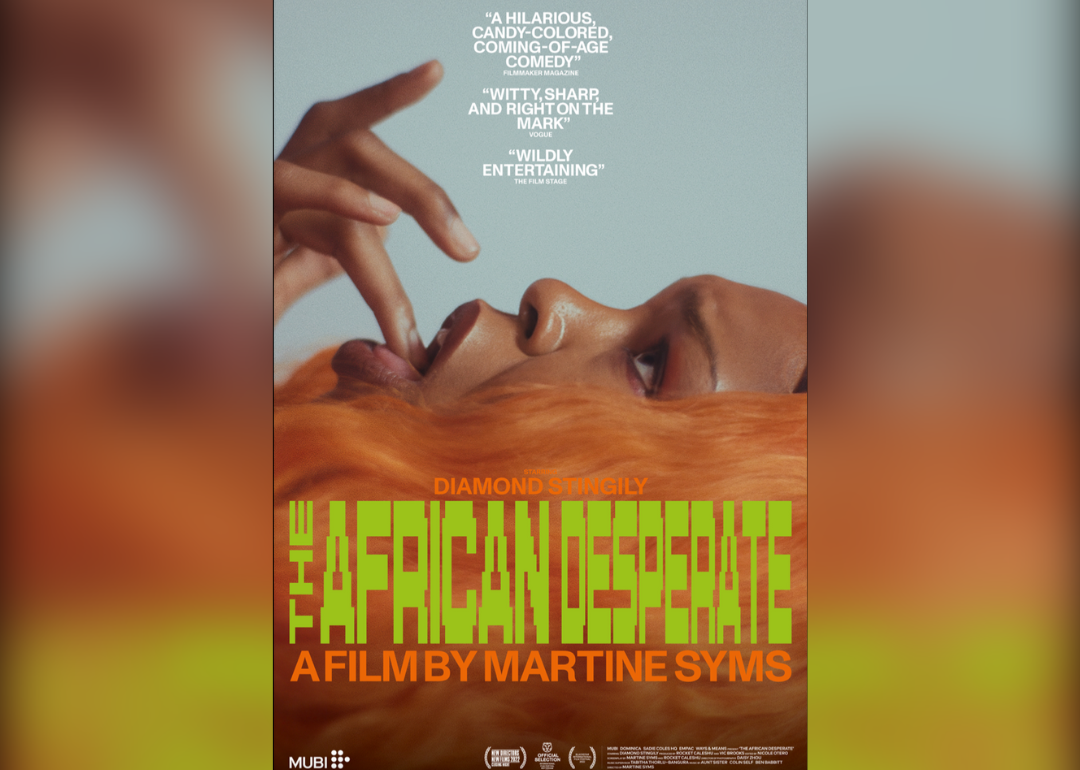
Ways & Means
#18. The African Desperate
Promotional image from the film ‘The African Desperate.’
– Director: Martine Syms
– Metascore: 72
– Runtime: 97 minutes
“The African Desperate” is about a woman trying to navigate an overwhelmingly, and sometimes oppressively, white environment. Through the story of Palace (Diamond Stingily), an MFA hopeful, this coming-of-age story, comedy, and drama makes a pointed statement about the struggles Black artists face in the world of fine art. Directed by Martine Syms, who comes from an art background herself, “The African Desperate” is both an emotional and experimental film that cements Syms’ artistic voice.
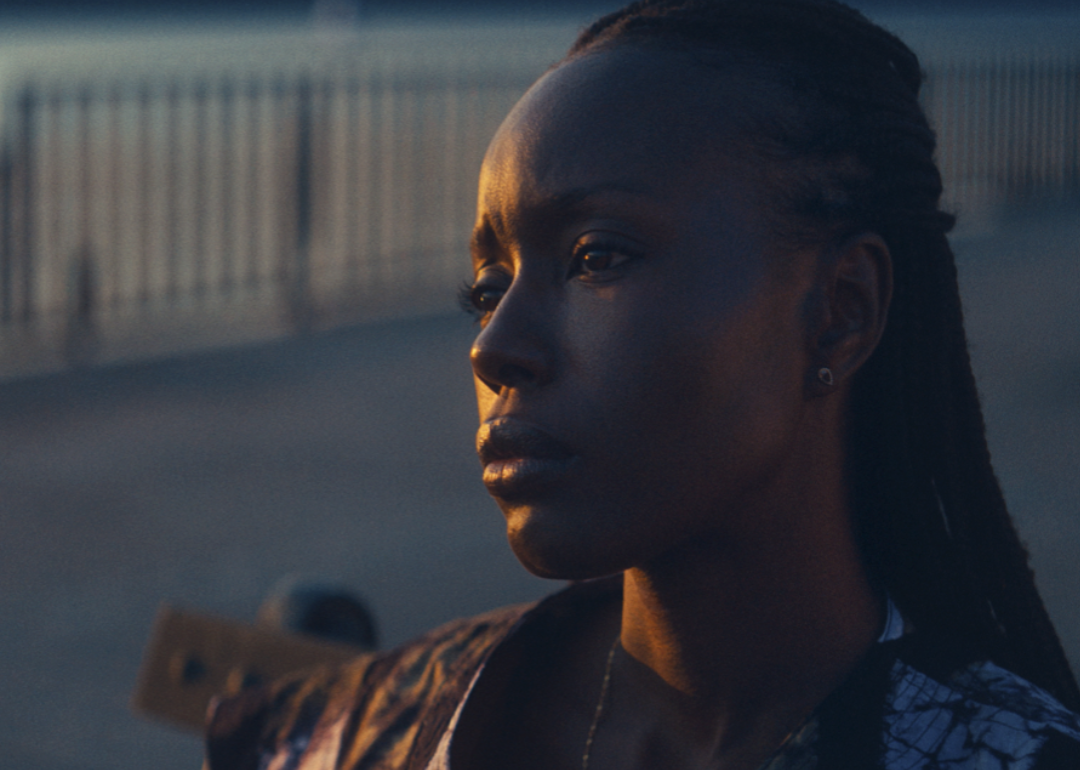
Mouth of a Shark, LLC.
#17. Nanny
Anna Diop in a scene from ‘Nanny.’
– Director: Nikyatu Jusu
– Metascore: 72
– Runtime: 97 minutes
Like 2020’s “His House” and 2021’s “No One Gets Out Alive” before it, “Nanny” is a contemporary horror film centered around the already harrowing experience of immigrants and refugees. The plot follows Aisha (Anna Diop), an immigrant from Senegal who takes a nanny job to send money to her son, who has yet to immigrate to America. The film centers around the maternal struggle of leaving a child behind to take care of another one and weaves African folklore throughout the predominantly white space Aisha navigates.
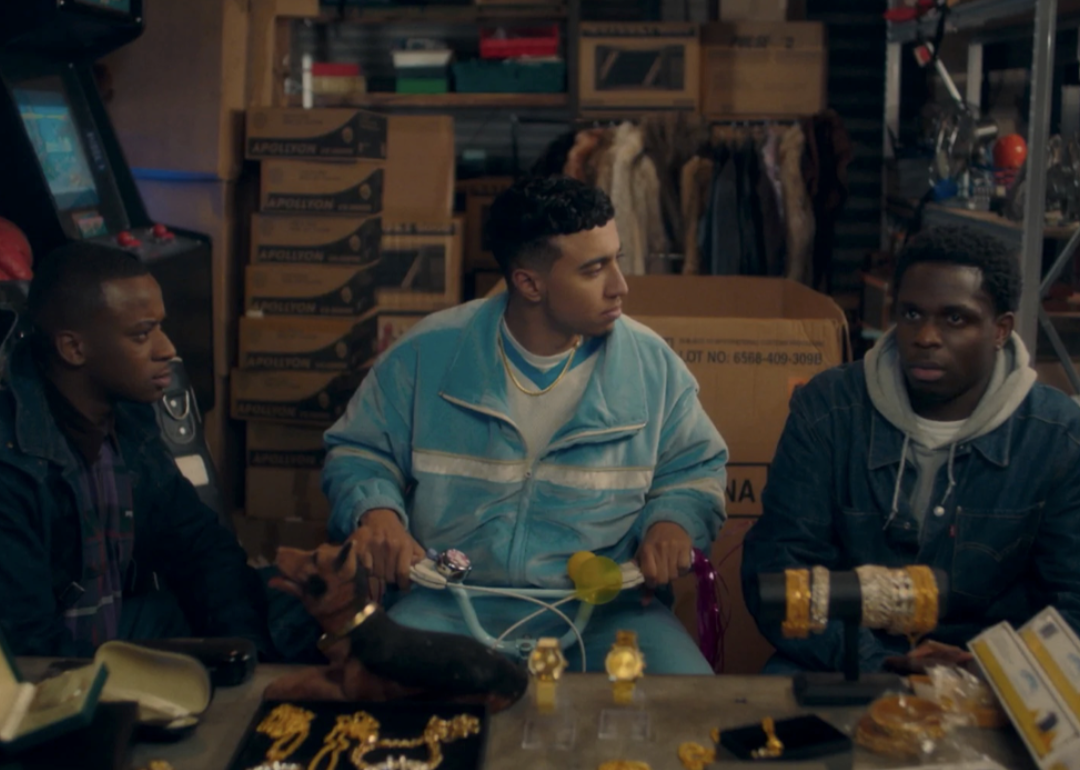
Hillbilly Films
#16. Pirates
Elliot Edusah, Jordan Peters, and Reda Elazouar in a scene from ‘Pirates.’
– Director: Reggie Yates
– Metascore: 73
– Runtime: 80 minutes
“Pirates” is a charmingly comedic British tribute to the ’90s Y2K music scene created by actor-turned-director Reggie Yates. The film follows Cappo (Elliot Edusah), Two Tone (Jordan Peters), and Kida (Reda Elazouar), who make garage music and run a pirate radio station as they attempt to gain admittance to a legendary New Year’s Eve party so Two Tone can win over his crush. “Pirates” is a love letter and a time capsule of ’90s London, filled with spectacular dialogue and an impressive soundtrack.
You may also like: Best Clint Eastwood movies
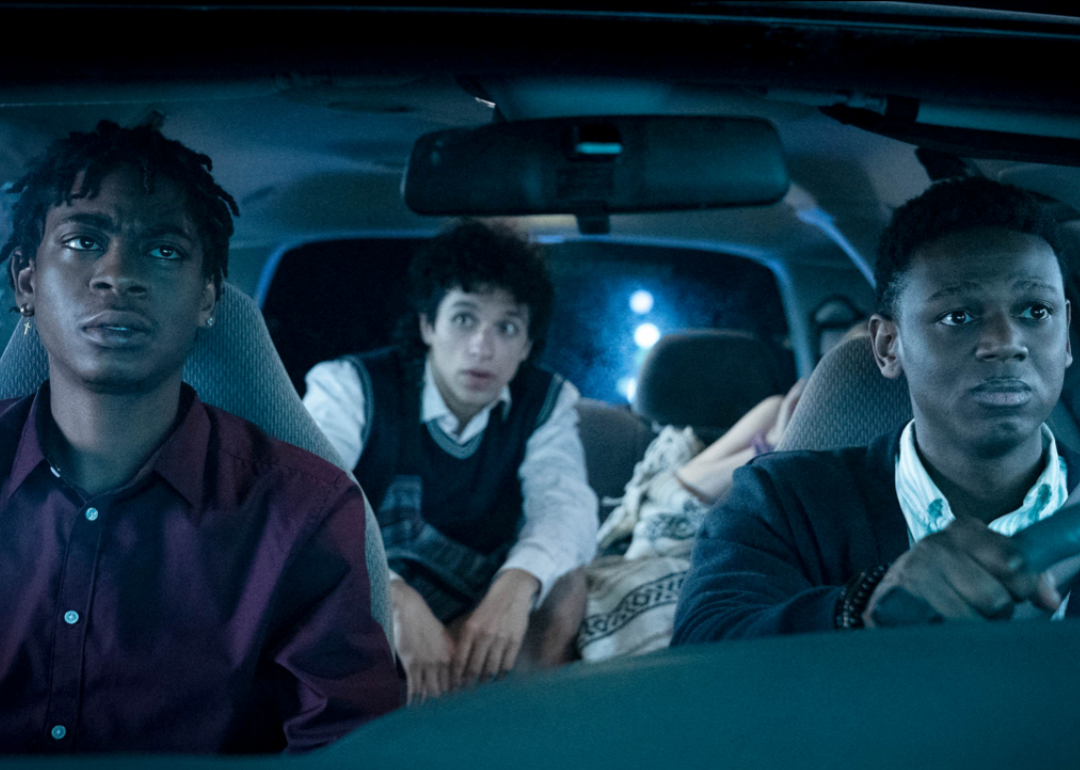
Sundance Institute
#15. Emergency
Donald Elise Watkins, RJ Cyler, and Sebastian Chacon in ‘Emergency.’
– Director: Carey Williams
– Metascore: 73
– Runtime: 105 minutes
What starts as a “Superbad”-esque comedy following three college kids trying to achieve the “legendary tour” of attending seven frat parties in one night quickly turns into a horror story once the trio, all people of color, find a white teenage girl passed out in their living room. They can’t call the police for fear of being blamed, and they’re not sure what’s happened to the girl to render her unconscious. Either way, they try to get her to an emergency room but face several roadblocks along the way. Streaming on Amazon Prime, “Emergency” explores the tension and unrest on modern college campuses, and the trauma young Black Americans have come to expect from campus life.
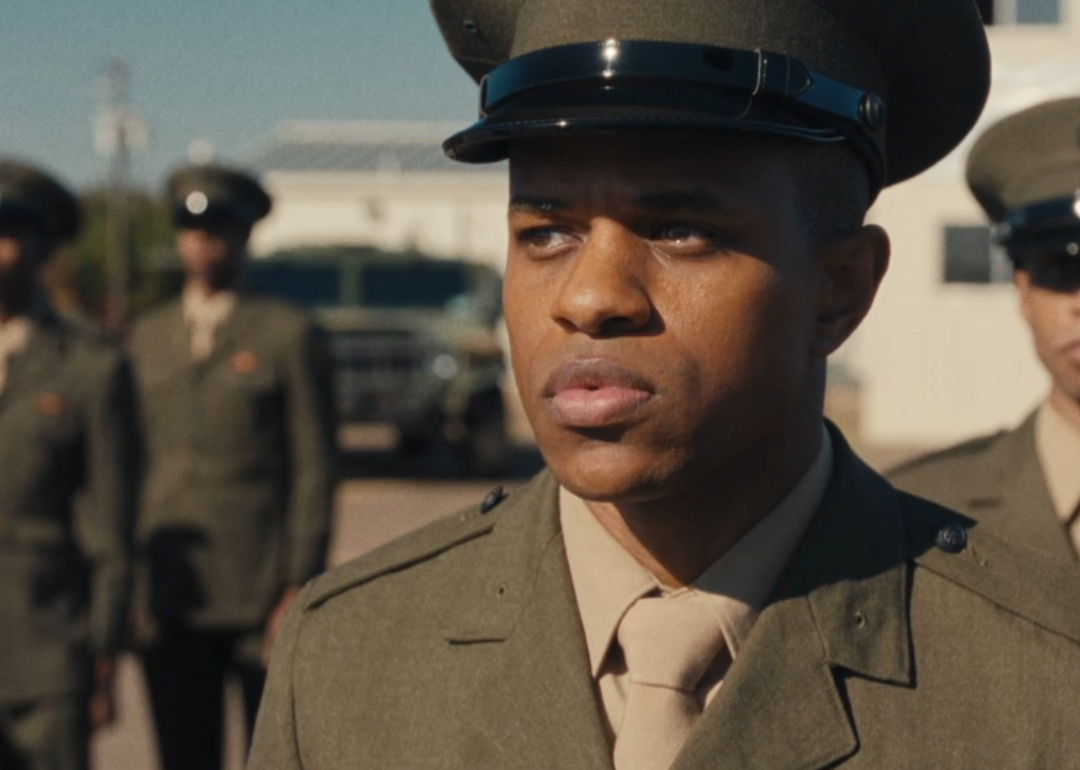
Freedom Principle
#14. The Inspection
Jeremy Pope in a scene from ‘The Inspection.’
– Director: Elegance Bratton
– Metascore: 73
– Runtime: 95 minutes
Perfectly setting the tone for this masterful 2022 film, writer-director Elegance Bratton describes the time in his life that inspired “The Inspection” as “Full Metal Jacket” meets “Moonlight.” Ellis French (Jeremy Pope) is a young gay Black man who is kicked out of his family for being gay. When he joins the Marine Corps, he is forced to once again come face-to-face with brutal homophobia in the ironically homoerotic confines of the Marine brotherhood. Pope’s performance as Ellis has earned him critical acclaim and a nomination for Golden Globe for Best Actor – Motion Picture Drama.

Neon
#13. Beba
Rebeca Huntt in a scene from ‘Beba.’
– Director: Rebeca Huntt
– Metascore: 74
– Runtime: 79 minutes
This first feature film by Afro Latina director Rebeca Huntt is an intimate and explorative documentary centered entirely around Huntt herself. “Beba” is a coming-of-age story, a family history, and an exploration of contemporary racism directed toward intersectional identities like Huntt herself. Intercut with arthouse titles and a grainy colorful aesthetic, Huntt gets deeply personal with stories about her family’s migration to New York and her father’s narrow escape from ethnic cleansing.
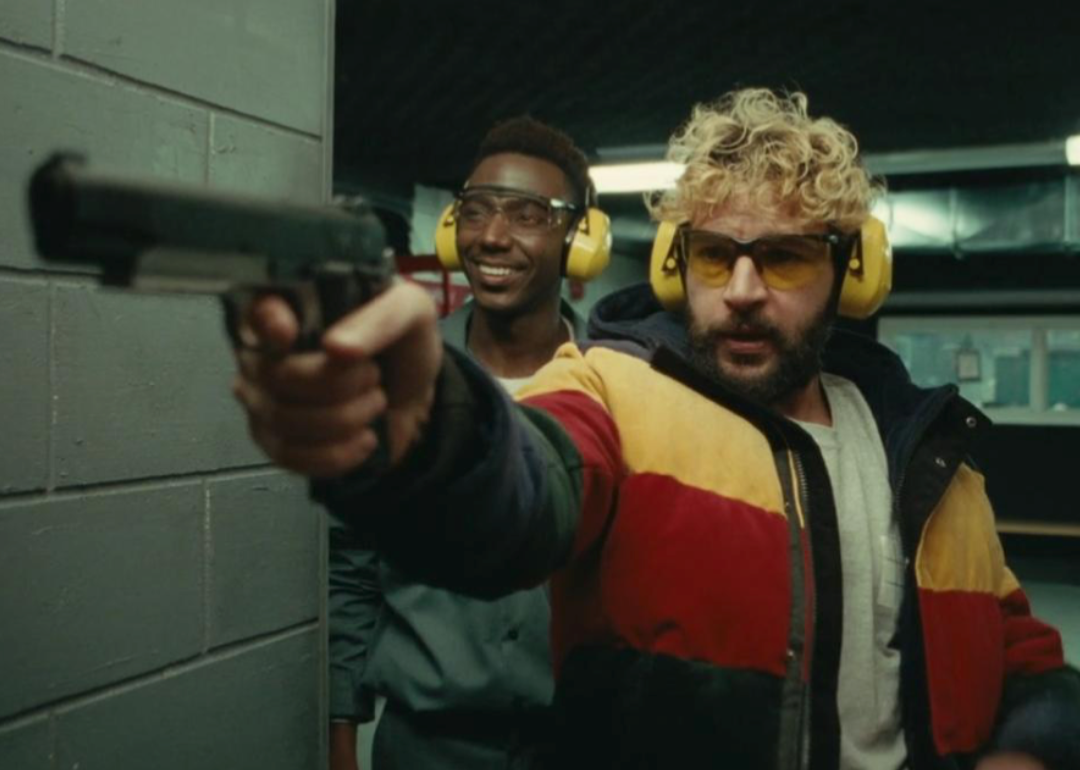
Front Porch Pictures
#12. On the Count of Three
Christopher Abbott and Jerrod Carmichael in ‘On the Count of Three’.
– Director: Jerrod Carmichael
– Metascore: 74
– Runtime: 86 minutes
Marking the impressive directorial debut of stand-up comedian Jerrod Carmichael, “On the Count of Three” balances heavy topics like suicide and fatherhood while also being a Black comedy. The film follows two friends, Val (Carmichael) and Kevin (Christopher Abbott), who decide to tackle all their unfinished business in one day after they make a suicide pact, including killing a former molester and recovering stolen money. While the plot is strong, the performances of Carmichael and Abbott form the heart of this movie, using comedy to take an unflinching look at men’s mental health.
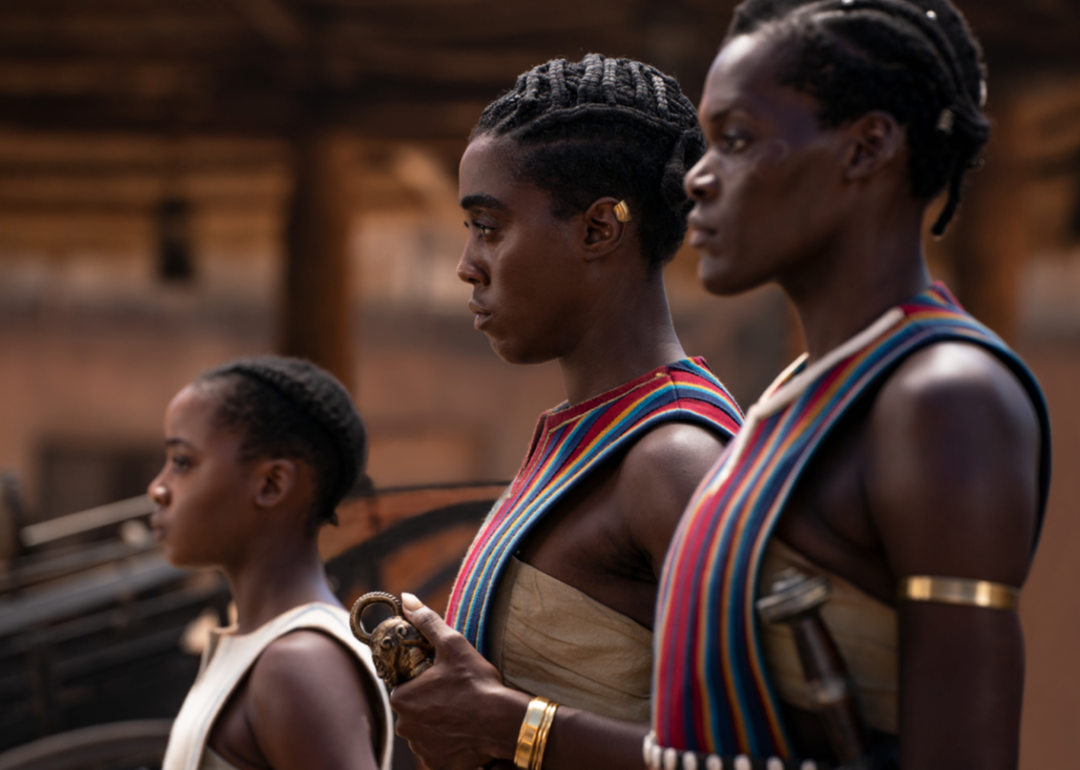
Sony Pictures
#11. The Woman King
Lashana Lynch, Sheila Atim, and Thuso Mbedu in ‘The Woman King.’
– Director: Gina Prince-Bythewood
– Metascore: 77
– Runtime: 135 minutes
Based on the real-life exploits of the Agojie, a band of elite female warriors that protected Benin (formerly the West African kingdom of Dahomey), “The Woman King” fictionalizes history to create an engaging story of female empowerment. The award-winning actor Viola Davis leads this film as General Nanisca, who trains young warriors to join the Agojie ranks under the advisement of King Ghezo (John Boyega). Director Gina Prince-Bythewood has accomplished the difficult feat of creating an engaging Hollywood blockbuster that still has heart and depth of character that makes it easily stand out.
You may also like: Famous movie quotes from the year you were born
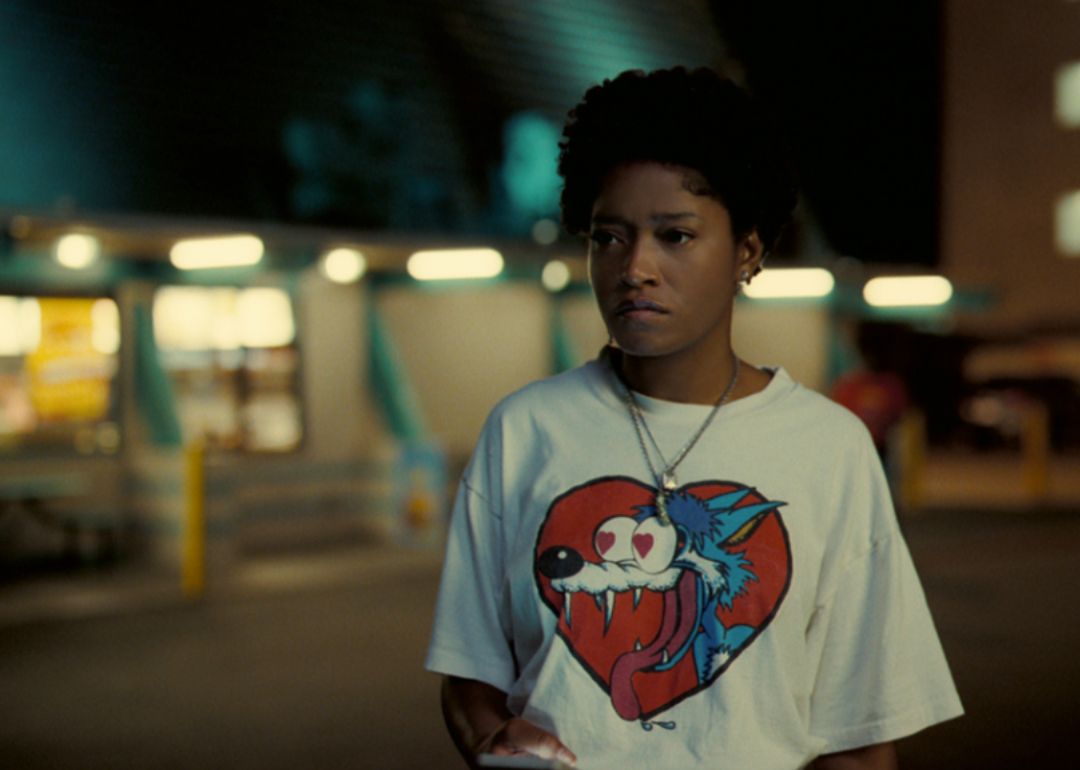
Universal Pictures
#10. Nope
Keke Palmer in ‘Nope.’
– Director: Jordan Peele
– Metascore: 77
– Runtime: 130 minutes
“Nope” marks the third feature film by comedian-turned-horror master Jordan Peele. With his most grand and technologically advanced film to date, “Nope” also features one of the most horrifying cold opens of the year. The film follows a brother-sister duo of horse trainers in California named OJ (Daniel Kaluuya) and Emerald (Keke Palmer) whose lives get completely turned upside down when they discover a UFO has killed their father and taken up residence above their ranch. “Nope” is both a critique of the importance of spectacle in modern entertainment and an exploration of the exploitation of Black people and animals in cinema history.
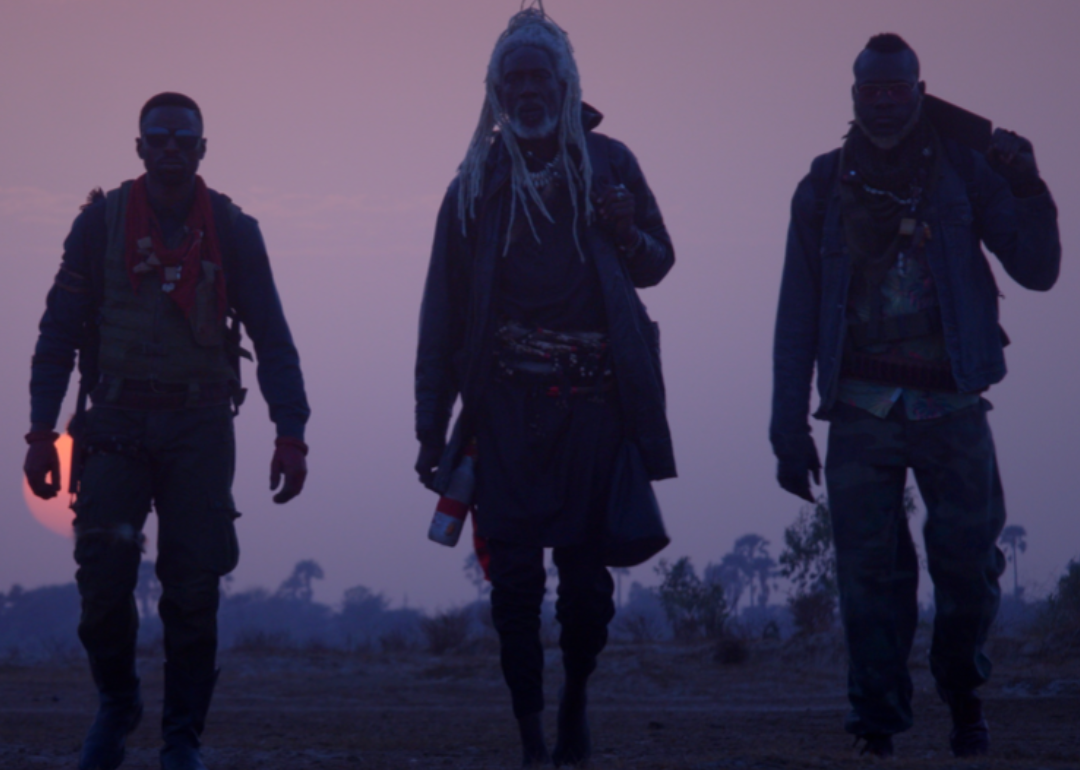
Lacmé
#9. Saloum
Roger Sallah, Yann Gael, and Mentor Ba in ‘Saloum.’
– Director: Jean Luc Herbulot
– Metascore: 78
– Runtime: 84 minutes
Set in the countries of Guinea-Bissau and Senegal during the real-life historical coup of Guinea-Bissau in 2003, “Saloum” follows a trio of mercenaries who are stranded in an isolated camp following an extraction. “Saloum” is a brilliant example of genre hybridity, with Richard Kuipers of Variety describing the film as a combination of “Spaghetti Westerns, samurai dramas, and classic monster movies” while still being a wholly African film. Despite the various genre and tonal shifts, director Jean Luc Herbulot creates a cohesive and engaging film that successfully creeps audiences out with its chilling supernatural events.
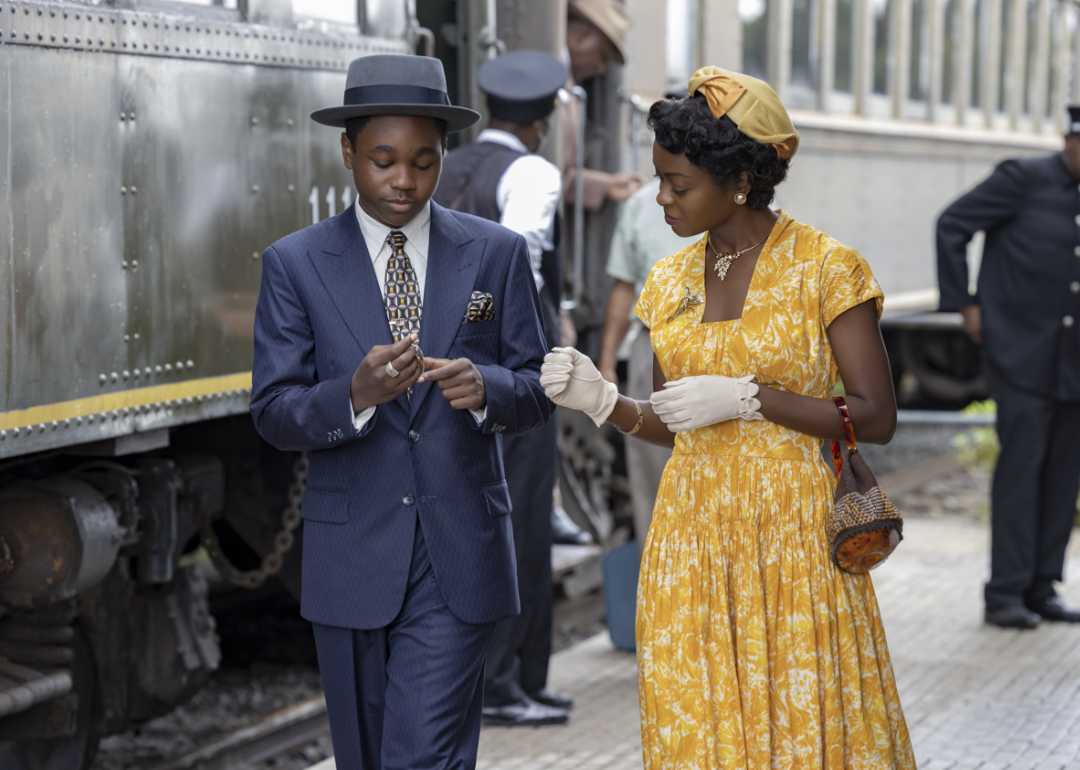
Orion Pictures
#8. Till
Danielle Deadwyler and Jalyn Hall in a scene from ‘Till.’
– Director: Chinonye Chukwu
– Metascore: 79
– Runtime: 130 minutes
The murder of Emmett Till is a deeply disturbing example of the racism present in American society. For its part, 2022’s “Till” seeks to highlight the fearless activism of Emmett’s mother, Mamie Till, while simultaneously exploring the ramifications of his death. “Till” is careful to avoid exploiting said death for shock value, with director Chinonye Chukwu promising not to depict any onscreen violence against Black characters. The film has been praised for its directing, cinematography, and performances, with particular attention to the brilliant performance of Danielle Deadwyler as Mamie, which has cemented her as a star.
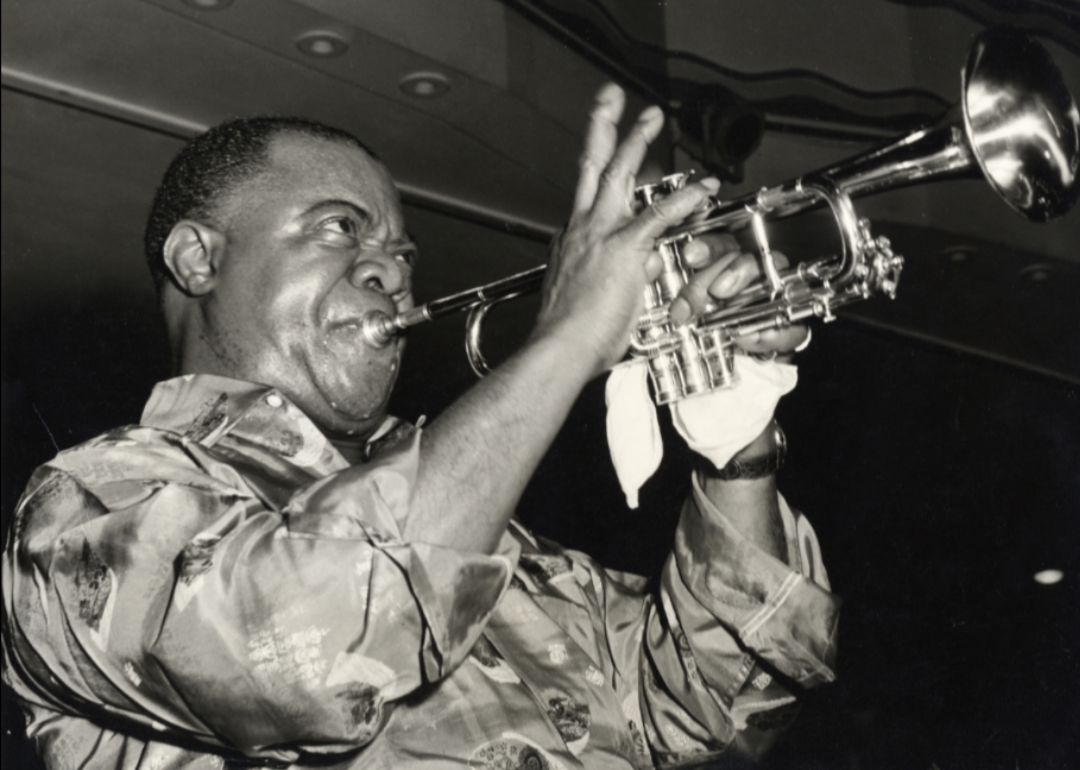
Apple TV+
#7. Louis Armstrong’s Black & Blues
Louis Armstrong in the documentary ‘Louis Armstrong’s Black & Blues.’
– Director: Sacha Jenkins
– Metascore: 80
– Runtime: 106 minutes
“Louis Armstrong’s Black & Blues” takes the structure of the documentary film and puts an artistic twist on it, modeling itself as a scrapbook. Indeed, director Sacha Jenkins was directly inspired by Louis Armstrong’s scrapbooks, which are exhibited in the film. Jenkins’ film takes us through Armstrong’s life, which is filled with charming anecdotes of his boyhood; interviews with other artists who knew him later in life; and a celebration of his musical performances that everyone knows and loves. However, the documentary does not shy away from asking the audience challenging questions about Armstrong’s public involvement, or lack thereof, with the civil rights movement in a nuanced way that does not condemn the man.
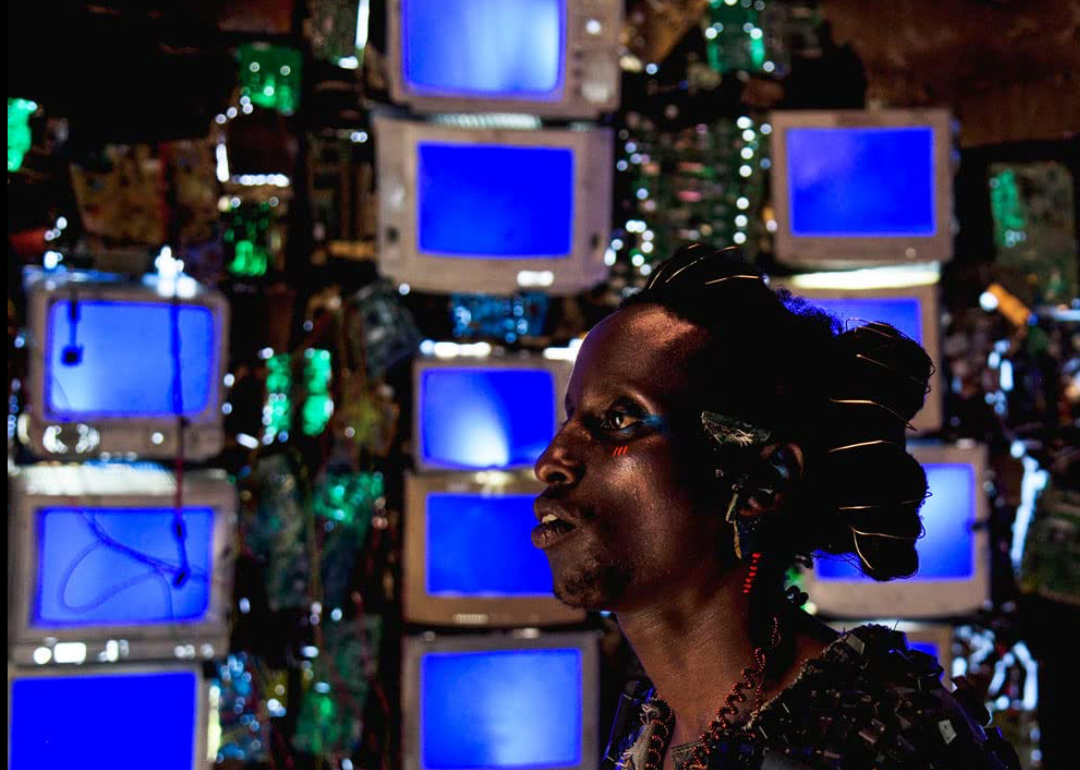
Swan Films
#6. Neptune Frost
An image from the film ‘Neptune Frost.’
– Directors: Anisia Uzeyman, Saul Williams
– Metascore: 83
– Runtime: 105 minutes
Originally conceived as both a graphic novel and later a stage musical, “Neptune Frost” is a hybrid science fiction musical film with queer and anticapitalist themes. Falling into the genre of Afrofuturism, which illustrates conceptions of the future through a Black lens, this film follows a miner and an intersex hacker who find themselves in another dimension where they join a rebellion. “Neptune Frost” was created by the musician Saul Williams, who co-directs with his wife, Anisia Uzeyman. Together, the duo successfully creates a dreamlike yet energetic film with beautiful cinematography.
You may also like: 100 best fantasy movies of all time
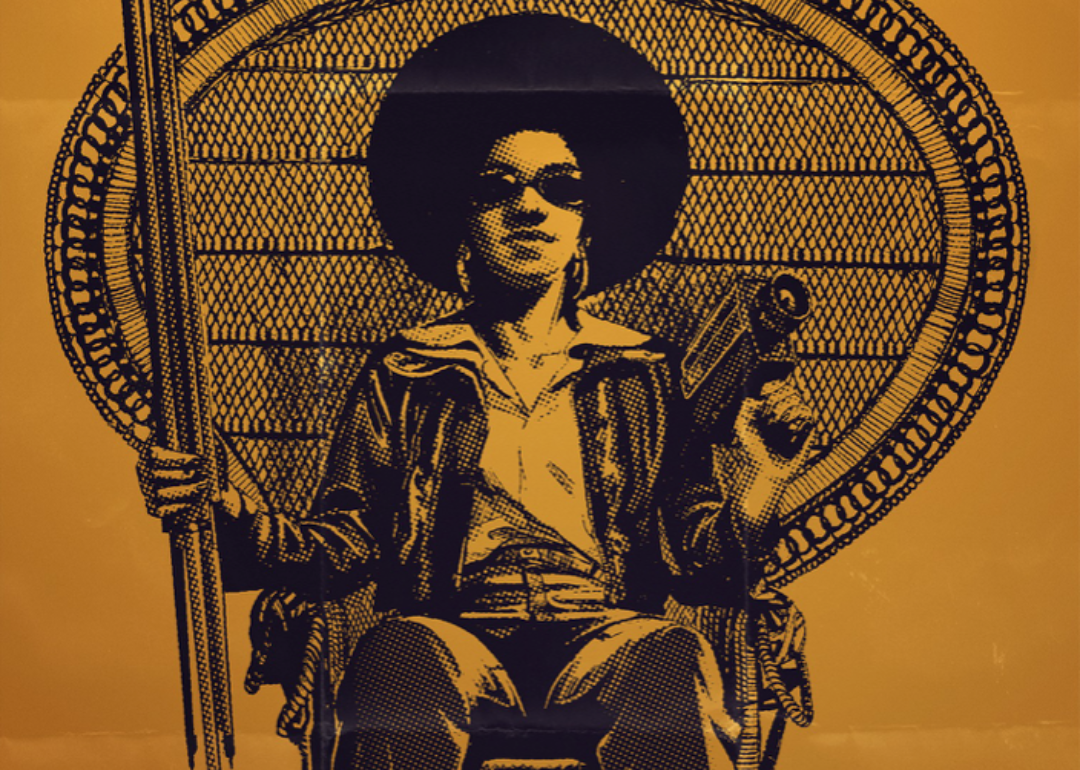
Netflix
#5. Is That Black Enough for You?!?
Promotional image from the documentary ‘Is That Black Enough for You?’
– Director: Elvis Mitchell
– Metascore: 83
– Runtime: 135 minutes
“Is That Black Enough for You?!?” stands out on this list as a Black film about the history and evolution of Black cinema, specifically in the 1970s. Written, directed, and narrated by Elvis Mitchell—who has long served as a film critic, working for publications like the New York Times and the Fort Worth Star-Telegram—the documentary has a more personal tone, prioritizing the subject’s significance to Mitchell over objective historical reporting in a way that makes the film all the more engaging. It also includes stellar interviews with Black icons like Samuel L. Jackson, Laurence Fishburne, and Whoopi Goldberg, who, with Mitchell, lived through the history they discuss in the film.
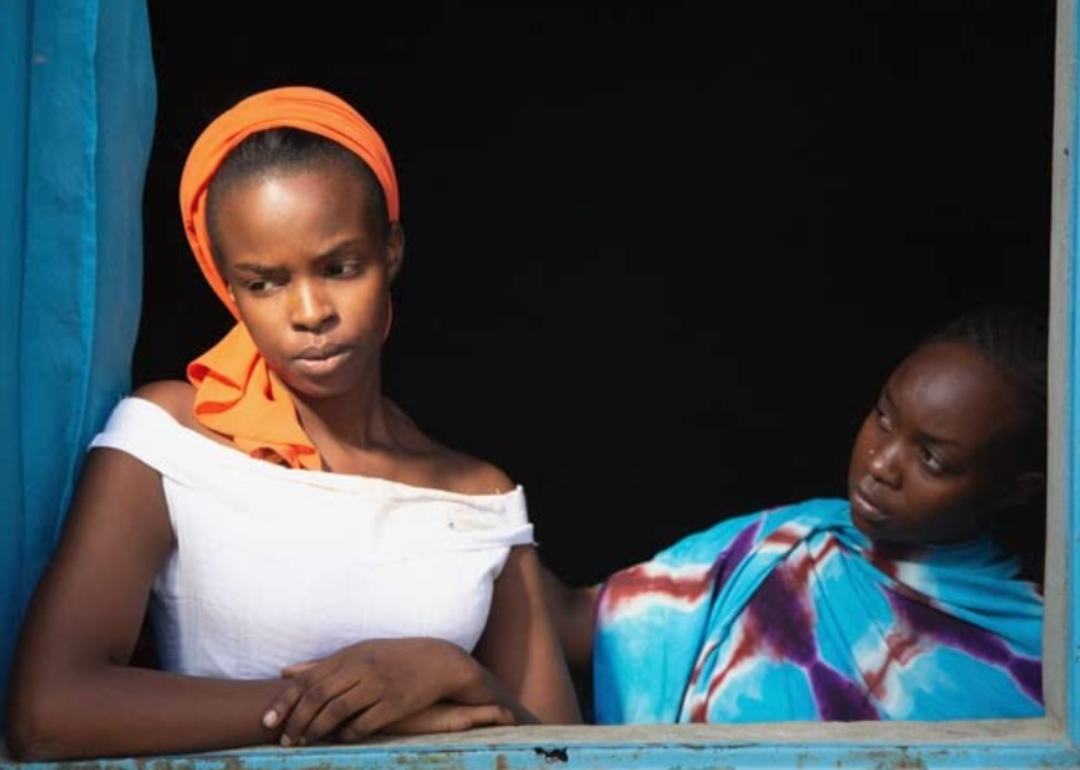
Pili Films
#4. Lingui
Achouackh Abakar Souleymane and Rihane Khalil Alio in a scene from ‘Lingui.’
– Director: Mahamat-Saleh Haroun
– Metascore: 83
– Runtime: 87 minutes
Chosen by the country Chad as their official submission to the 94th Academy Awards’ Best International Feature Film category (though not selected), “Lingui” (also called “Lingui, The Sacred Bonds”) is a slice-of-life drama about motherhood and the experiences of women within a religious and patriarchal society. The film follows single mother Amina and her teenage daughter Maria, who is sexually assaulted and desperately seeks an abortion, a procedure banned by law and religion in their predominantly Muslim homeland. Written and directed by Mahamat-Saleh Haroun, who was born and raised in Chad, the intimacy and empathy of the film make it a moving and ultimately hopeful viewing experience.
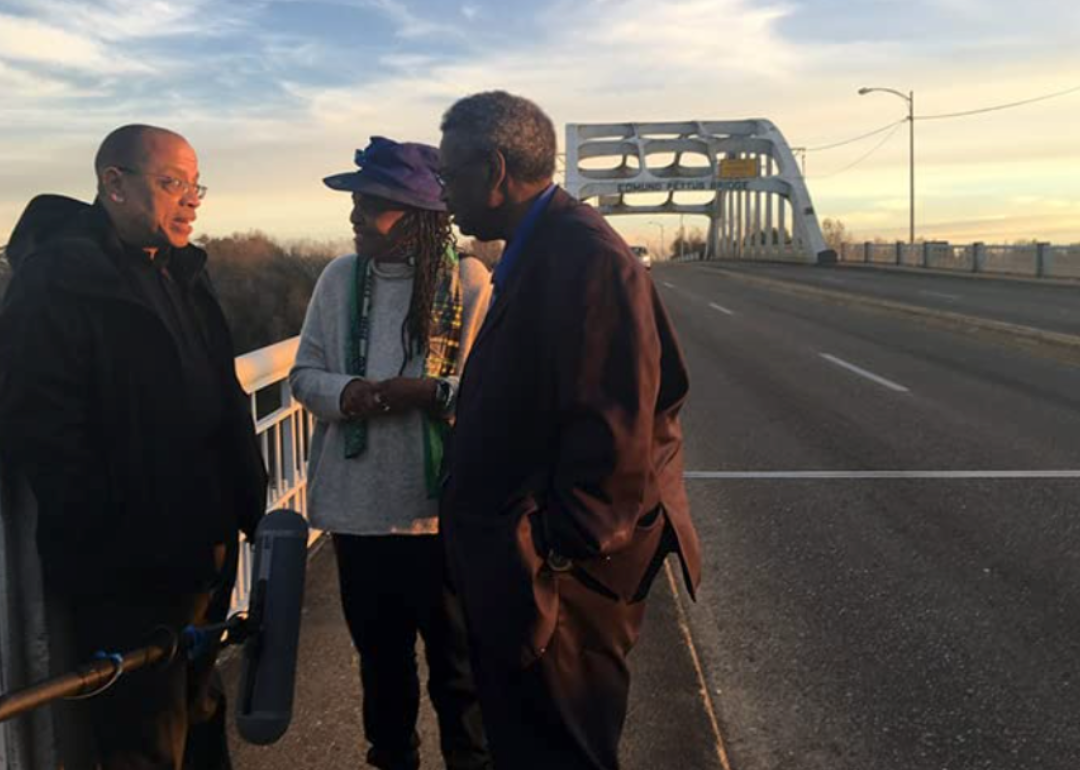
Off Center Media
#3. Who We Are: A Chronicle of Racism in America
An image from the documentary ‘Who We Are: A Chronicle of Racism in America.’
– Directors: Emily Kunstler, Sarah Kunstler
– Metascore: 84
– Runtime: 117 minutes
In this impressive documentary, criminal defense and civil rights lawyer Jeffery Robinson paints a truthful portrait of the history of racism against Black people in the United States and the unfortunately relevant presence of white supremacy in contemporary America. “Who We Are” intercuts Robinson with archival footage and interview subjects, including a survivor of the Tulsa Race Massacre named Mother Randle and Dr. Tiffany Crutcher, whose brother was killed on live television. The film is an adaptation of a series of lectures Robinson gave around the United States, directed by sisters Emily and Sarah Kunstler, who aim to bring said lectures to a wider audience.
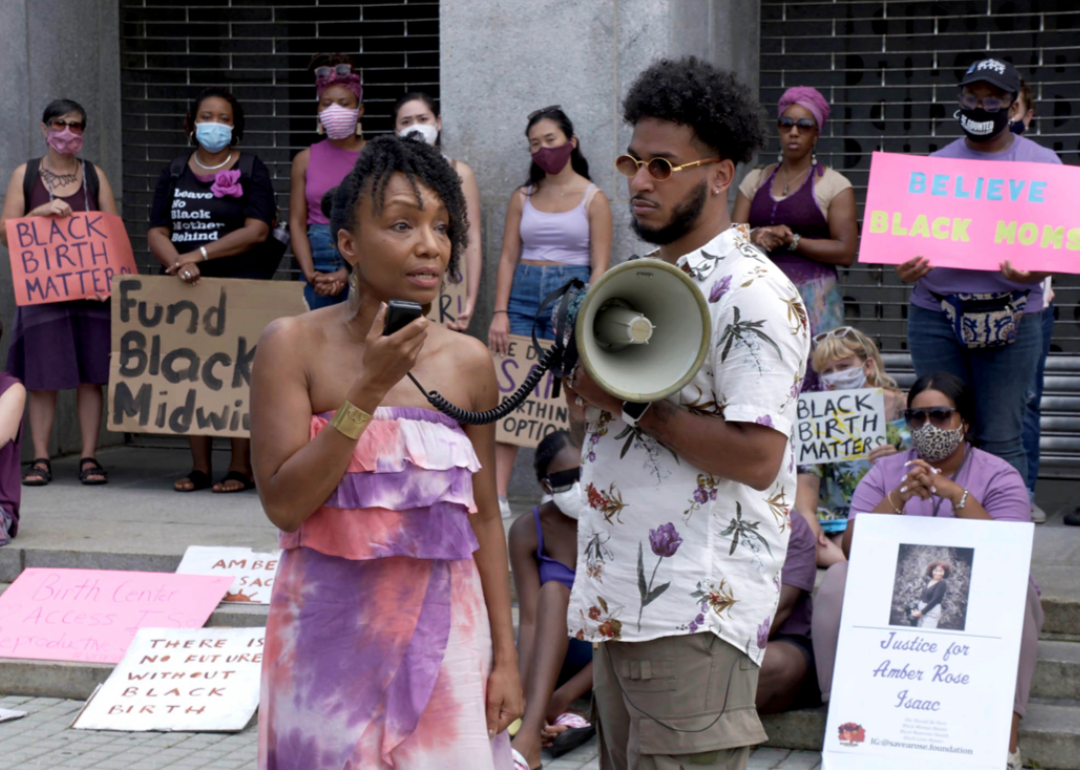
Impact Partners
#2. Aftershock
An image from the documentary ‘Aftershock.’
– Directors: Paula Eiselt, Tonya Lewis Lee
– Metascore: 87
– Runtime: 86 minutes
“Aftershock” is a documentary about two Black families ripped apart by the grief that follows the mothers’ deaths post-childbirth, leaving the now single fathers to raise their children and discover a new way forward. Fathers Omari Maynard and Bruce McIntyre quickly form a lifelong bond through their shared trauma, deciding to become mental health activists and bring awareness to the maternal mortality crisis. Black director-producer Tonya Lewis Lee co-created the film; she is the wife of Spike Lee.
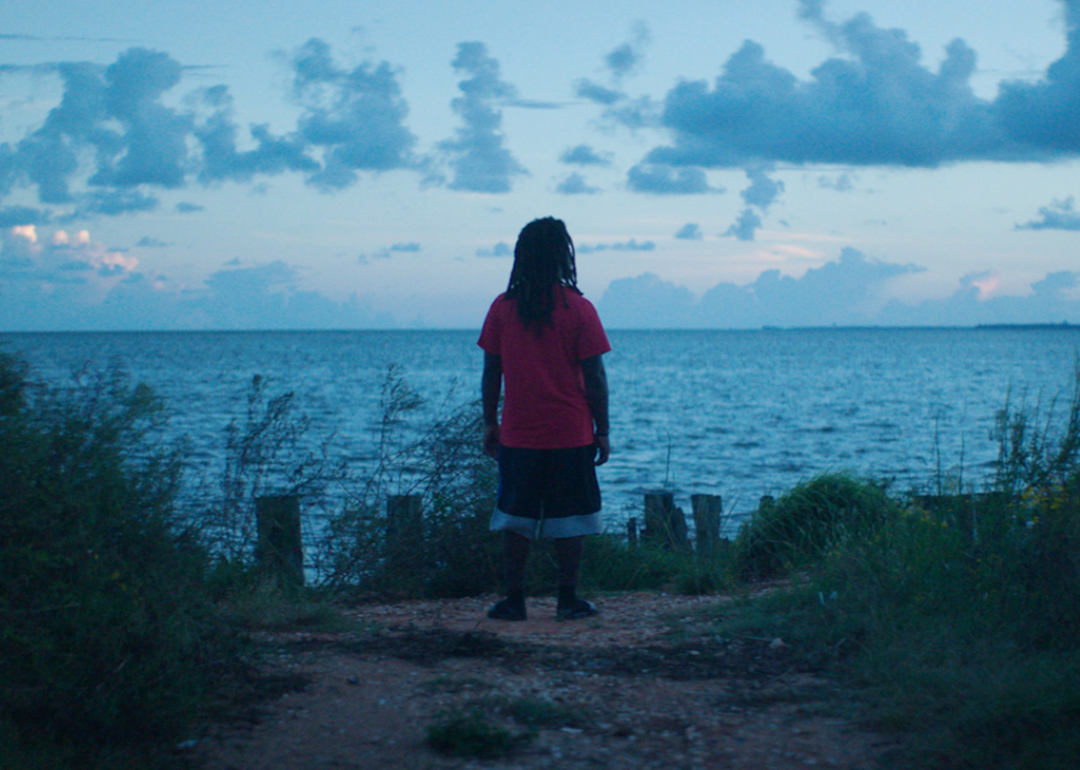
Higher Ground Productions
#1. Descendant
An Image from the documentary ‘Descendant.’
– Director: Margaret Brown
– Metascore: 88
– Runtime: 109 minutes
Distributed by former President Barack Obama’s film production company Higher Ground, “Descendant” is a documentary about the Clotilda, the last slave ship to reach American soil in 1860. Sparked by the discovery of the ship’s remains, the heart of the film is about Africantown, a community where many of the descendants of those enslaved on the Clotilda still live. This film was directed by Margaret Brown, a white director, but Brown intentionally brought on Black producer Essie Chambers and worked in conjunction with Dr. Kern Jackson, an African American studies professor from the University of South Alabama, to ensure the project was still fundamentally a Black story.
You may also like: Why these famous films were banned around the globe






